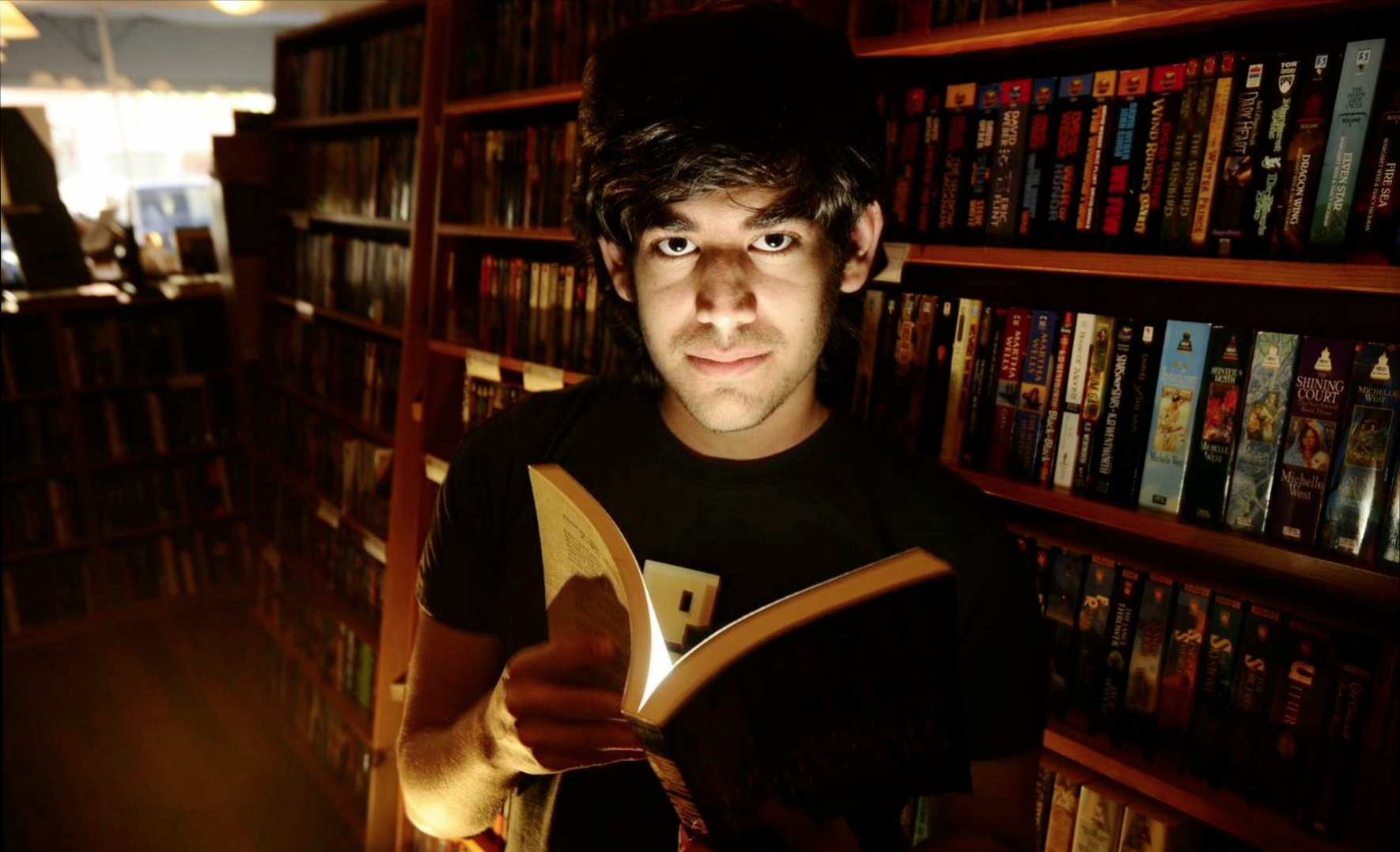This documentary about the short life of Internet hacktivist Aaron Swartz (1986–2013) begins and ends with heartbreaking home movies of the child prodigy in Chicago. Director Brian Knappenberger got full access to the Swartz family, and their candor about Aaron—hounded to suicide by draconian federal prosecutors—is no less moving. But, in a sense, tears are the easy part here. We see a bright, idealistic teen programmer treated as a peer by the adults with whom he helped develop RSS; he later co-founds and sells Reddit, then transitions to political causes. Here is a gifted young man, his life cruelly cut short.
What’s harder to convey—which Knappenberger does with many screen graphics and expert interviews—is the complicated, contested notion of what the Internet should freely divulge, keep secret, or license and hold behind paywalls. I confess, as a journalist whose brain is constantly connected by keyboard to the Web, that Swartz’s important activities and untimely death didn’t first register as they should’ve. The federal charges, brought in 2011, seemed impossibly dull: downloading academic journals, gigabytes, IP addresses, proxy servers, and endless lines of code. Always with the coding, some of which we see onscreen. Coding, coding, coding.
Yet that was Swartz’s great love: coding as a kind of magic; coding that, if used altruistically, could provide public access to restricted yet publically funded research (and court documents, and government laws and records); coding that could promote democracy and disseminate knowledge. And Swartz has plenty of high-powered friends and mentors who testify here about that civic good: Lawrence Lessig, Tim Berners-Lee, Cory Doctorow, etc. And more, Knappenberger invokes Julian Assange, Edward Snowden, and Bradley/Chelsea Manning; they, with Swartz, become modern-day martyrs of the digital age.
“Sharing is not immoral,” Swartz declared in a cyber-manifesto (with other authors), which warned against the privatization of public knowledge. The feds, in a post-9/11 context, interpreted this as a pirate’s intent to steal and attack protected networks. Over and over, Swartz’s defenders decry the government’s attempt to “make an example” of this gentle young download freak. Yet Knappenberger shies away, perhaps as Swartz did, from the larger implications of everything-for-free sharing culture. All those databases he siphoned, as others do today, were edited, compiled, and indexed by someone—perhaps by some bright, penniless grad student like Swartz, only without the Reddit windfall, who needed the job. Though the feds wouldn’t speak to Knappenberger, he ought to have solicited more opinions outside Swartz’s circle of friends.
Knappenberger, who previously profiled the group Anonymous in We Are Legion: The Story of the Hacktivists, also dismisses the news accounts that Swartz’s depressive tendencies predated his arrest and prosecution. Still, this sympathetic if one-sided doc leaves the feeling that if you use the Internet and unquestioningly accept its terms and conditions, Swartz died for your sins.
Runs Fri., July 11–Thurs., July 17 at Northwest Film Forum. Not rated. 104 minutes.
bmiller@seattleweekly.com








